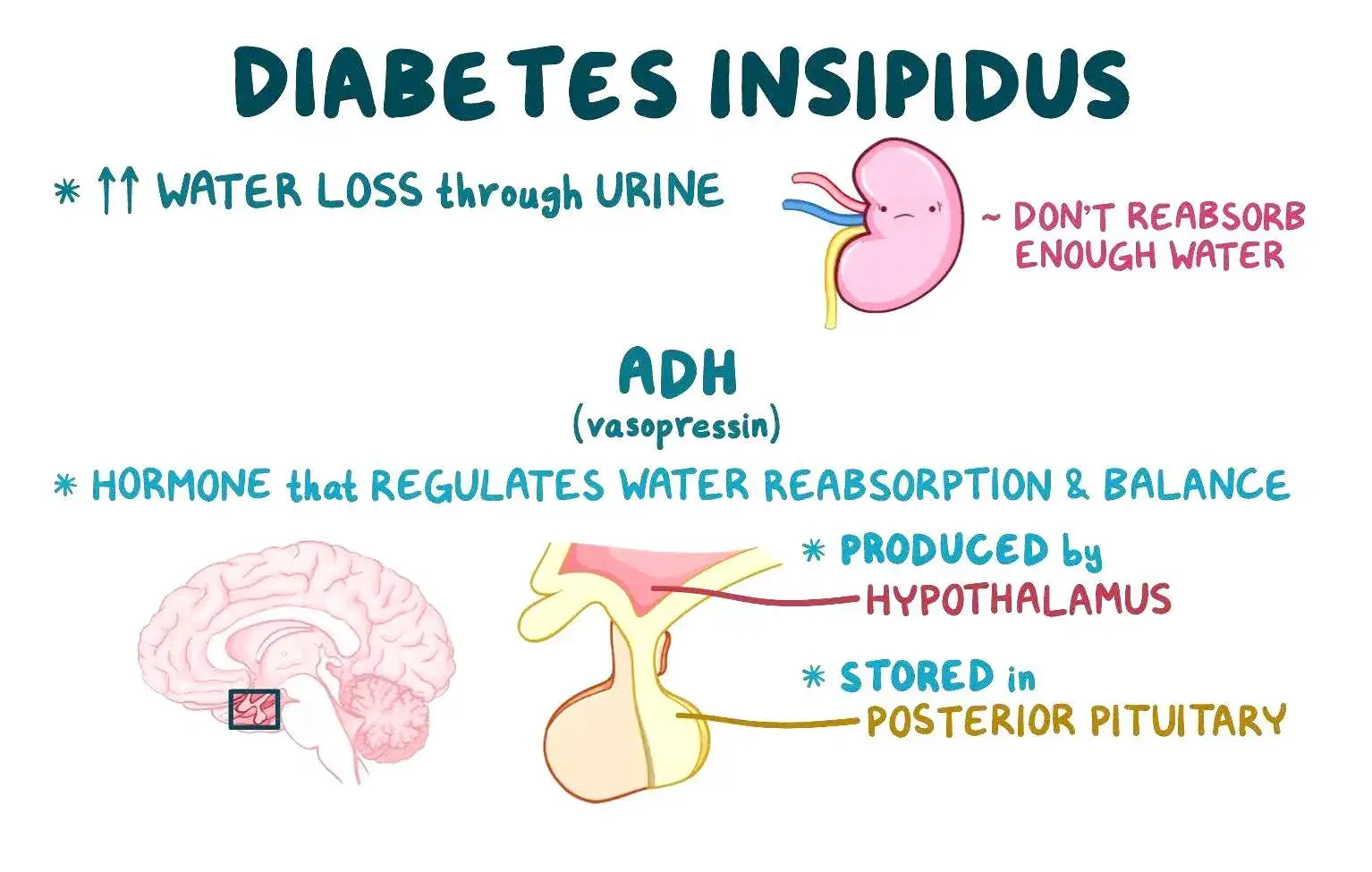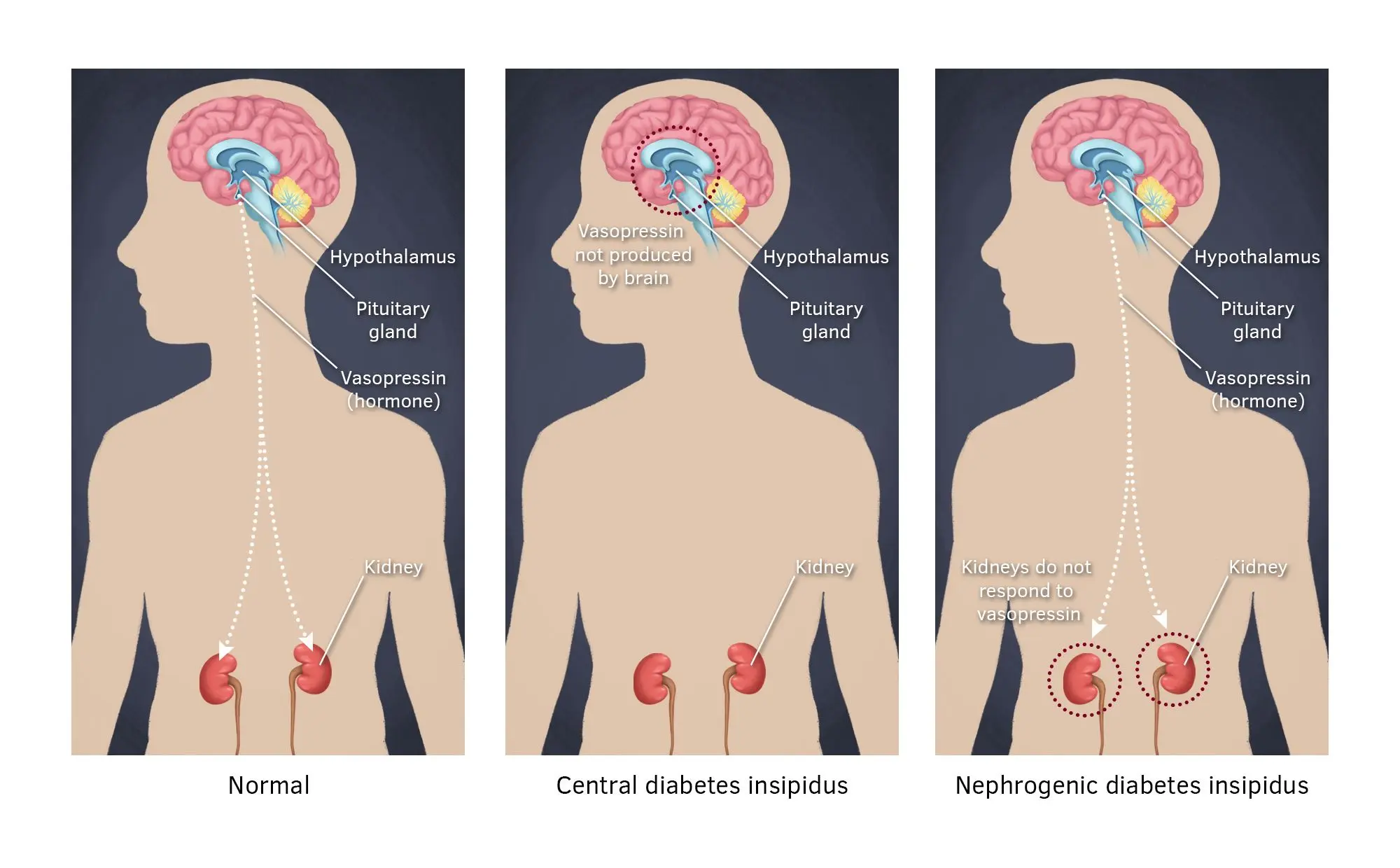Can Diabetes Insipidus be Cured?
Sometimes
Management focuses on controlling symptoms and addressing the underlying cause; outcomes depend on the specific cause of diabetes insipidus

What is Diabetes Insipidus?
Diabetes insipidus is a rare condition characterized by excessive thirst and urination. It is caused by a deficiency of antidiuretic hormone (ADH). Treatment depends on the underlying cause and may involve medications or hormone replacement therapy.

Clinical Aspects

Characteristics
Disorder characterized by excessive thirst and urination due to the kidneys’ inability to conserve water

Symptoms
Excessive thirst, frequent urination, diluted urine

Diagnosis
Water deprivation test, urine and blood tests

Prognosis
Variable, depends on the cause and response to treatment

Complications
Dehydration, electrolyte imbalances
Etiology and Treatment

Causes
Insufficient production of antidiuretic hormone (vasopressin) or the kidneys’ insensitivity to the hormone

Treatments
Medications (desmopressin), addressing underlying causes, fluid management

Prevention
Medications (desmopressin), addressing underlying causes, fluid management
Public Health and Patient Perspectives

Epidemiology
Condition characterized by excessive thirst and urination due to inadequate anti-diuretic hormone (ADH)

Patient Perspectives
Management of underlying causes, hormone replacement
For personalized advice and care, always seek the assistance of healthcare professionals. This information is meant for general understanding and not as a replacement for professional medical advice.
Share: